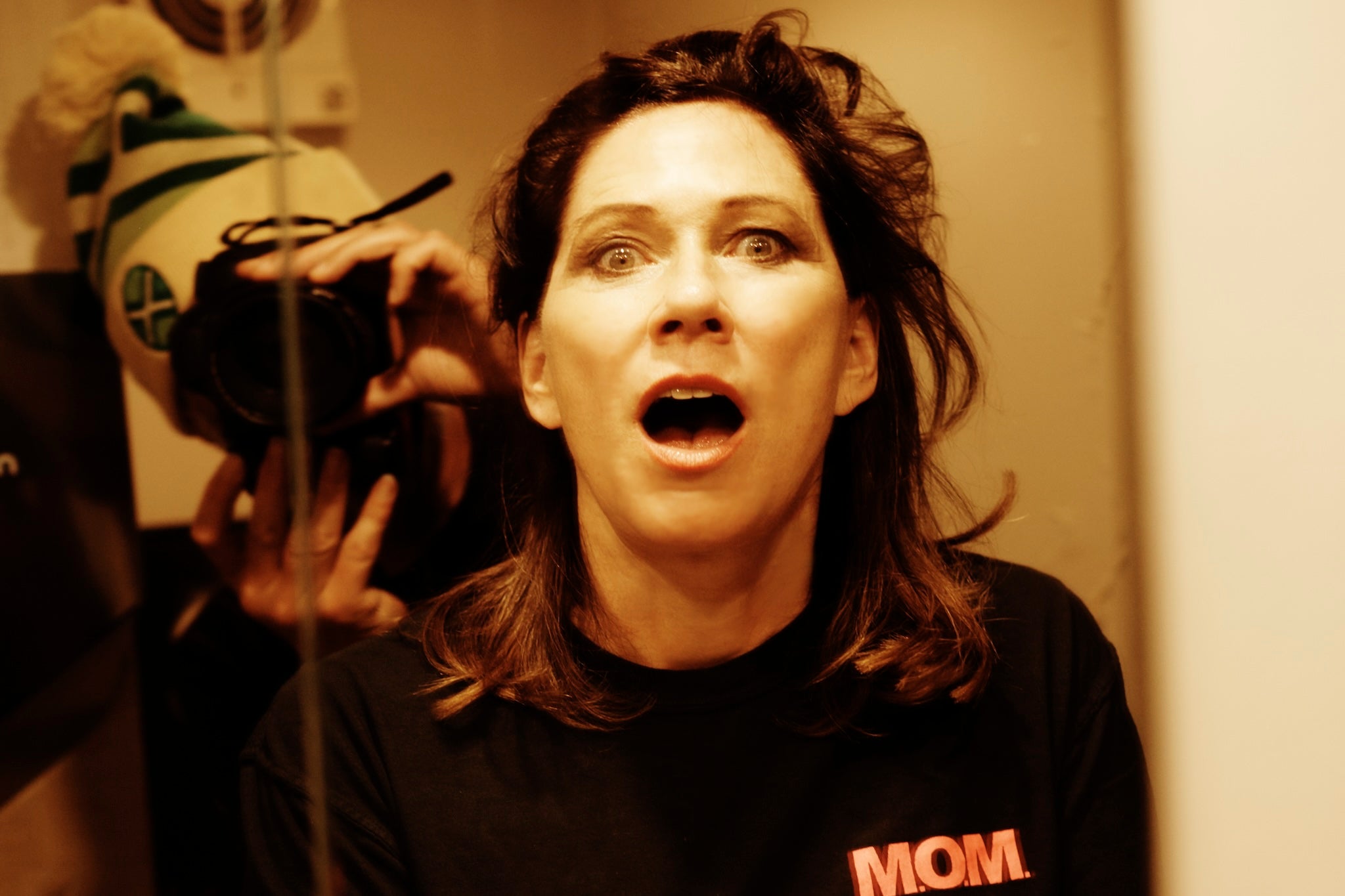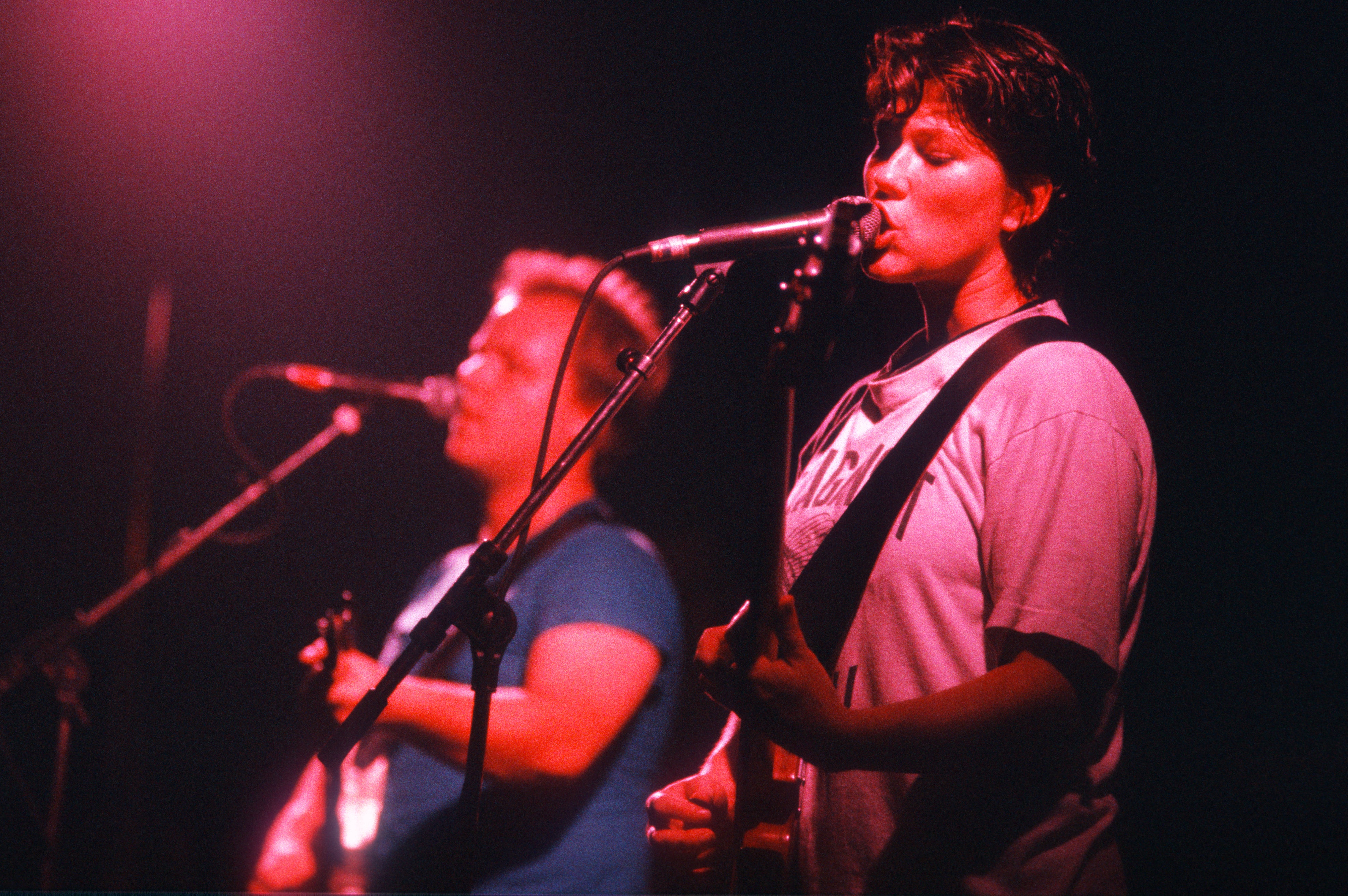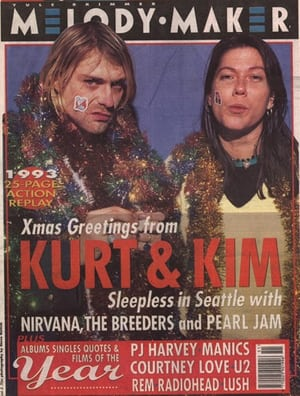
The inviolable hipness of Kim Deal is well documented in music history. There’s the 1997 Dandy Warhols song “Cool as Kim Deal” that testifies to that very fact. Kurt Cobain admitted he was “freaked” to meet her. Only last year did Gen Z superstar Olivia Rodrigo call Deal still the “coolest girl in the world”.
There is a good reason for it, which has as much to do with the generation-shaping songs she wrote and performed in the Nineties with the Pixies and The Breeders as it does with the fact she used to solder her own cables. She’s also shockingly nice for an alternative-rock icon. Within minutes, she is apologising for postponing our interview (“Forgot my passport on the way to the airport!”) and cracking jokes about hospice care and death (“I’m f***ing kidding!”).
It is strange to see Deal not flanked by bandmates – but there’s a good reason for that, too. At 63, she is releasing her first solo album, surprising no one more than herself. “I love bands,” she says emphatically. “Growing up in the Midwest it was hard rock bands all the way. I never liked singer-songwriters; they were fine or whatever, but I didn’t care. I always loved bands, you know, imagining they had… drugs!” She cackles.
Nobody Loves You More is less of a radical shift for Deal than it is a statement of evolution. She is still the meticulous music obsessive, only with a wider palette: folding moments of country and sweet doo-wop with plaintive reveries, lush orchestra and full-bodied rock. Long in the making, the album spans a period of loss and change for Deal as she got sober and devoted herself to caring for her ailing parents.
“By the time it was the end for my mom, it really was the end because she was in a space she would not have liked to have been,” says Deal, who moved home to care for her parents full-time until her father died in 2019; her mother passed less than a year later. “She had a pacemaker,” Deal continues. “Man, it was really rough. Her heart was just boom, boom, boom, boom.” She puts a hand to her chest and feigns a violently automated heartbeat. “I was like, this can’t keep going on. What is happening?” She laughs, her eyes in horror at the memory. “God, it’s hard to remember now. It was all so f***ing sucky.”
Describing life-changing loss as “f***ing sucky” is classic Deal. As the Pixies bassist, she grinned alongside frontman Black Francis as he begged a woman to cut herself up on a cactus and mail him the bloody dress on their 1988 ballad “Cactus”. Built on Deal’s snaking bass lines, Pixies was credited with introducing the “loud-quiet-loud” sound that defined the next decade of rock music, harnessed most memorably by Nirvana. Cobain himself insisted that “Smells Like Teen Spirit” was really just a Pixies rip-off.
But being part of one legendary alt-rock group wasn’t enough for Deal, she had to found another. After a contentious exit from Pixies (her fraught relationship with Francis is almost as old as the band itself), Deal found success with The Breeders, which she leads with her twin sister, Kelley. The Breeders doubled down on the sensuality and wryness Deal lent to Pixies, feeding it into hits like “Cannonball”; the band toured as recently as last year.
Speaking to Deal is a ride. She is friendly, disarmingly so, and conversation is easy, albeit set to an unfamiliar rhythm. Pauses arrive when you least expect them, bouts of laughter erupt unannounced. It can feel like stepping onto an escalator that’s stalled, only for it to roar to life under your feet throwing you suddenly off balance.

The album has left turns like this. Take the ukulele for example, that skips across the sun-hot sands of “Summerland”. That, Deal says, would never have made it onto a Breeders record: “Josephine [Wiggs] would’ve said, ‘Abso-loo-tely not!’”
The tiny four-stringer was a gift from the late great Steve Albini who among the thousands of albums he engineered, produced Pixies and The Breeders. He was, in many ways, Deal’s biggest fan. “I never thought I would have a song where I played the ukulele,” she says. “I thought: what am I going to do with you – plug it into a Marshall?” Albini had worked on Nobody Loves You More before his unexpected death in May this year.
One of the tracks on the album, “Coast”, a cautiously optimistic surf-rock jam, was inspired by a trip that she took to Nantucket around 1999 to dry out. “I’m from the Midwest and people from the coast think of that as flyover country so there’s a kind of snobbery,” she says. “It’s deserved, believe me! So, I was there drying out, looking at these kids on the coast – they’re so beautiful, kids on the coast – they were doing water sports in the daytime whereas I hadn’t even been outside in the daytime for a long time.”

The Deal sisters’ problems with substance abuse were well publicised at the time they were occurring: Kelley was arrested for heroin possession in 1994, and while Deal didn’t hit rock bottom in the same way, she did recognise a problem and checked herself into rehab in 2002. She hasn’t smoked pot or drank alcohol since.
Deal came back from the precipice, Albini happily observed back in 2018. Did she ever feel as though she was, as Albini said, on the edge? “There’s many precipices throughout that period of addiction, aren’t there?” Deal says. Albini only knew of the ones he saw first-hand. “One time, my dad came into the studio because Kelley had demanded it so that we could get work done,” she recalls. (In the same interview, Albini spoke of Deal’s “unreliability” during those times.)
“Talking to you right now,” she continues. “I think it was probably all arranged between them so he could be this stabilising presence. I look back at that and think, maybe they should’ve let me flounder. Just let me flounder. Isn’t that better for addicts? To let them face the consequence, and maybe they’ll get better quicker. I don’t know – we were all trying our best.” By then, Deal clarifies, she was only drinking and smoking pot: “New Jersey sober or whatever.”
People couch my whole output, everything, on these five years in this one band in the Eighties
Given the chance, would she redo those years? “I would.” Laughing, Deal adds: “I know I’m not supposed to say that! I’m supposed to say, ‘Living those years made me the person that I am…’” – that, she says in her best, most uppity English accent – “But no, it was a f***ing waste of time.” It’s not only her addiction years she’d like another shot at. “There was a weird time in the middle of the zeros, too. Nothing horrible was happening, but they seemed stale,” she says. “Anyway, it’s nice that I lasted long enough to actually contemplate the past like this. You know, I didn’t die at 25!”
Deal was born into music, which isn’t to say her parents were musicians (her father worked as a physicist at the Wright-Patterson air force base; her mother was a teacher) but that they were from West Virginia coal country. “There’s a tradition there of women playing guitars and singing, so it was sort of expected,” Deal says. “They loved listening to us sing.” They never held her and Kim back from pursuing music, but equally, they didn’t believe there was a future in it. “They were like, you do you – but also you’ll find out there’s no career in it or any money.” To her parents, Deal’s celebrity peaked when Pixies got in People magazine.
Within the mythology of indie-rock, the story of Kim Deal joining Pixies has practically ascended to the level of scripture. One week after moving to Boston in 1986, Deal, who was 25 at the time and working in a doctor’s office, was the only person to respond to an ad in a newspaper looking for a musician “into Hüsker Dü and Peter, Paul and Mary”.

Pixies arrived like a bolt from the blue, credited with changing the shape of alternative rock music. After 1987’s LP Come on Pilgrim came 1988’s snarling debut Surfer Rosa. The latter featured “Gigantic” – the rare Pixies track co-written by Deal, on which her breathy lead vocals fluttered above Black Francis’s hair-raising yelps.
In 1992, Kurt Cobain said that he wished Deal had been “allowed” to write more songs for the Pixies because “Gigantic” was their best. That narrative has followed Deal throughout her career. According to Pixie lore, she went on to form the female-fronted Breeders as a refuge because frontman Black Francis was freezing her out of the songwriting process.
Deal, though, is clear she never felt hamstrung during her time with Pixies. “I get why people think that,” she says. “But what we have got to remember is when I was in that band, I was a bass player and singer; [Francis] was the songwriter, singer, and guitar player. I play guitar at my house, and I write songs at my house, but in that band, I’m the bassist”.

“It’s sort of like couching my whole output, everything, on these five years in this one band in the Eighties,” she says of that narrative. “It’s like, how can we look back and decide how Pixies make that make sense when Pixies don’t have anything to do with anything!”
The idea that Deal, one of the few visible women in rock’n’roll, felt creatively stifled and so formed her own band on her own terms is an appealing one. A neat thread with which people can tie a bow around Deal and her career. “I get it but the thread is always like, I don’t have agency and I’m just a victim of the Pixies, that I must’ve suffered at their hands because I wasn’t allowed to write anything,” she says. “I was still a guitar player, still writing stuff the whole time through Pixies and Breeders.” Life doesn’t move in chapters; it’s overlapping and ambiguous. She wasn’t Kim Deal of the Pixies one minute and Kim Deal of The Breeders the next.
Deal is speaking from her home in Dayton, where she has lived for the last 10 years. Recently, she’s been toying with the idea of moving, not least because of recent political events. “Dayton went red!” she practically screams, speaking about the recent US election. “Sometimes I drive by these shrines to Trump in people’s yards and I think not every place in the country is like this. There are places where I could go and feel happier with my compatriots.”
That said, she knew for sure Kamala Harris wouldn’t win. “They were never going to vote for a woman!” Deal laughs. “Her being Black had nothing to do with it. She’s a woman!” Certainly, a woman in the Nineties indie-rock scene would know a thing or two about that.
‘Nobody Loves You More’ is out now via 4AD







